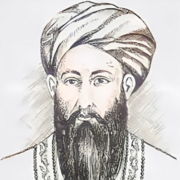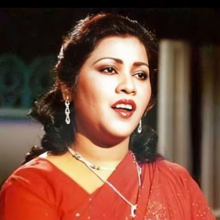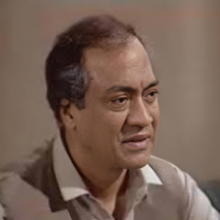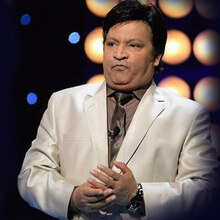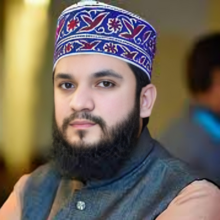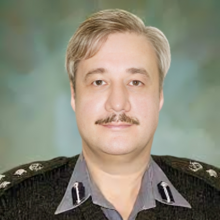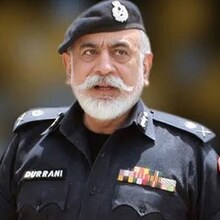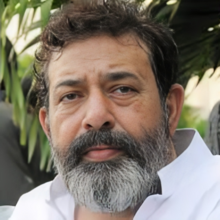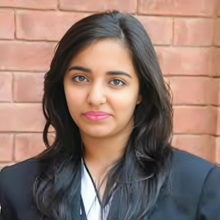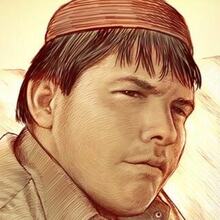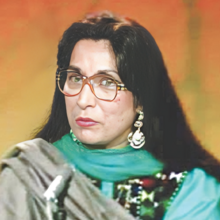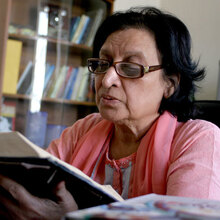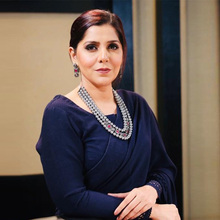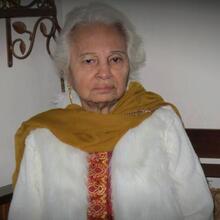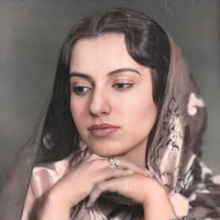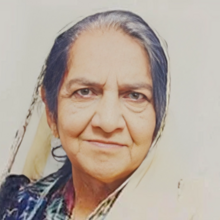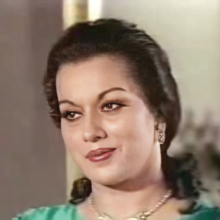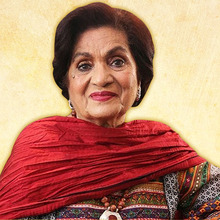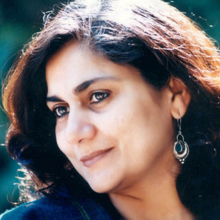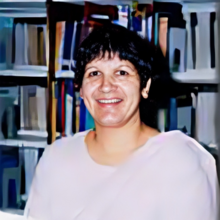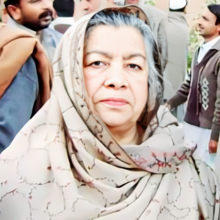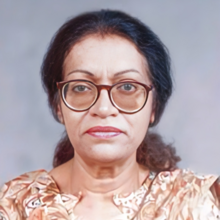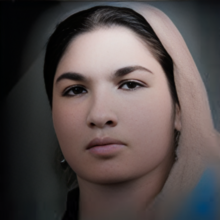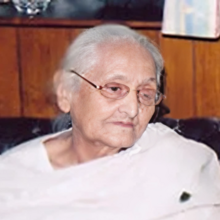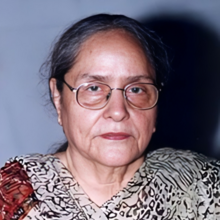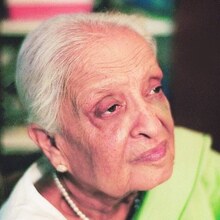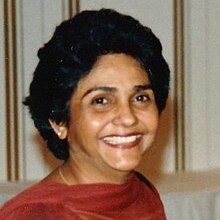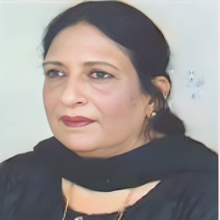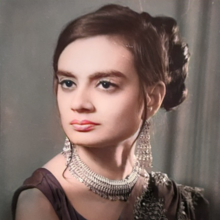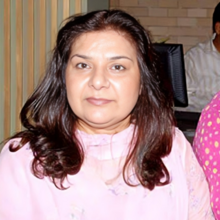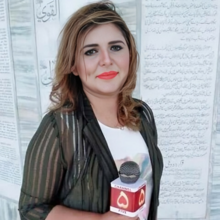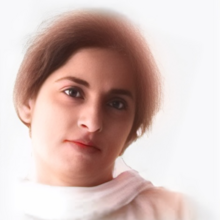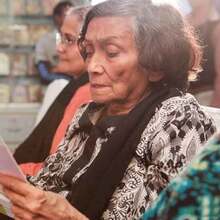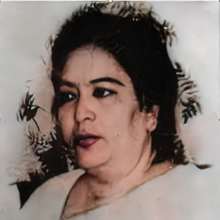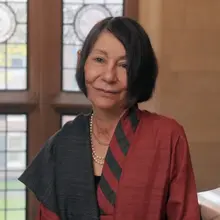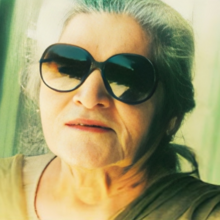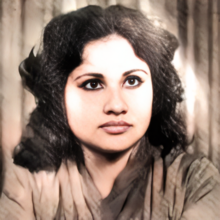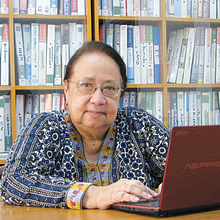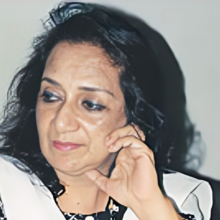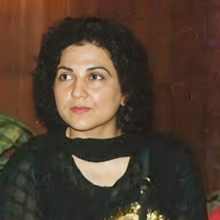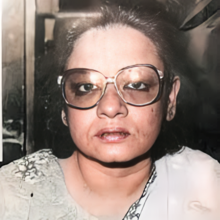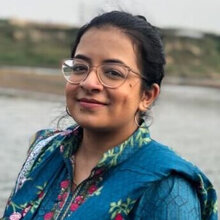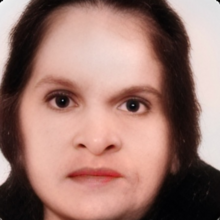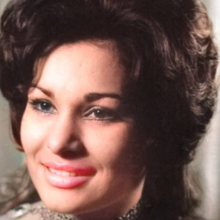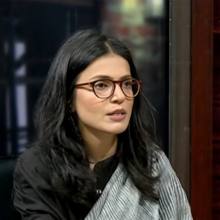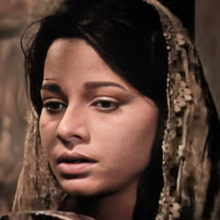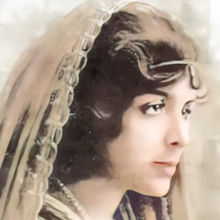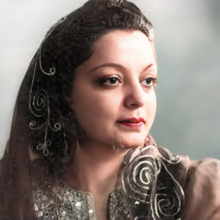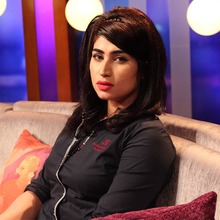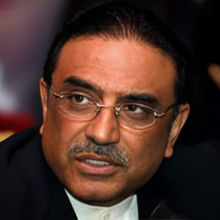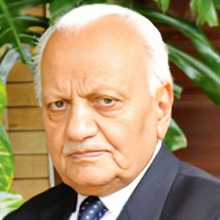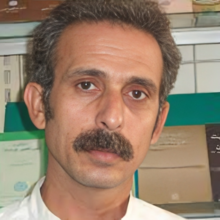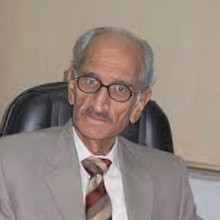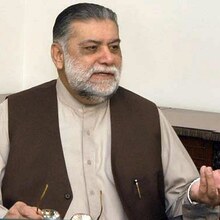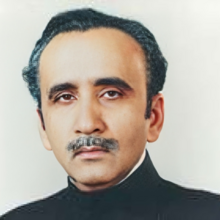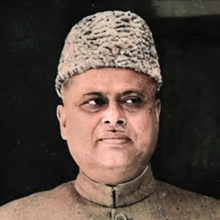 Ali Sadpara
1976 - 2021
Mountaineer and adventurer
Ali Sadpara
1976 - 2021
Mountaineer and adventurer
 Hassan Sadpara
1964 - 2016
Mountaineer and adventurer
Hassan Sadpara
1964 - 2016
Mountaineer and adventurer
 Abdul Sattar Edhi
1928 - 2016
Founder of Edhi Foundation
Abdul Sattar Edhi
1928 - 2016
Founder of Edhi Foundation
 Allama Muhammad Iqbal
1877 - 1938
Poet, philosopher, and politician
Allama Muhammad Iqbal
1877 - 1938
Poet, philosopher, and politician
 Mujeeb Alam
1948 - 2004
Film playback singer
Mujeeb Alam
1948 - 2004
Film playback singer
 Anjuman Shehzadi
1987 - 2011
Stage and film actress
Anjuman Shehzadi
1987 - 2011
Stage and film actress
 Ahmed Parvez
1926 - 1979
Painter
Ahmed Parvez
1926 - 1979
Painter
 Abdul Hafeez Kardar
1925 - 1996
Cricketer and politician
Abdul Hafeez Kardar
1925 - 1996
Cricketer and politician
 Zara Abid
1992 - 2020
Model and actress
Zara Abid
1992 - 2020
Model and actress
 Zahid Malik
1937 - 2016
Journalist, writer, editor-in-chief
Zahid Malik
1937 - 2016
Journalist, writer, editor-in-chief
 Hajra Masroor
1930 - 2012
Writer, feminist and activist
Hajra Masroor
1930 - 2012
Writer, feminist and activist
 Mazhar Kaleem
1942 - 2018
Writer, playwright and broadcaster
Mazhar Kaleem
1942 - 2018
Writer, playwright and broadcaster
 Amir Mehdi
1913 - 1999
High altitude porter
Amir Mehdi
1913 - 1999
High altitude porter
 Nasir Durrani
1957 - 2021
Police officer and former Inspector General
Nasir Durrani
1957 - 2021
Police officer and former Inspector General
 Nadira
1968 - 1995
Film actress and dancer
Nadira
1968 - 1995
Film actress and dancer
 Janullah Hashimzada
1969 - 2009
Bureau Chief
Janullah Hashimzada
1969 - 2009
Bureau Chief
 Asim Butt
1978 - 2010
Painter and sculptor
Asim Butt
1978 - 2010
Painter and sculptor
 Naushaba Burney
1932 - 2016
Journalist, social activist, and editor
Naushaba Burney
1932 - 2016
Journalist, social activist, and editor
 Fatima Surayya Bajia
1930 - 2016
Novelist, playwright, and drama writer
Fatima Surayya Bajia
1930 - 2016
Novelist, playwright, and drama writer
 Sardar Abdur Rab Nishtar
1899 - 1958
Member of the Working Committee
Sardar Abdur Rab Nishtar
1899 - 1958
Member of the Working Committee
 Kazi Zainul Abedin
1892 - 1962
Poet and scholar of Pashto and Persian
Kazi Zainul Abedin
1892 - 1962
Poet and scholar of Pashto and Persian
 Sara Shagufta
1954 - 1984
Poet
Sara Shagufta
1954 - 1984
Poet
 Askari Mian Irani
1940 - 2004
Painter and art activist
Askari Mian Irani
1940 - 2004
Painter and art activist
 Faisal Masud
1958 - 2021
Director of Exemplar Care
Faisal Masud
1958 - 2021
Director of Exemplar Care
 Shabbir Mirza
1946 - 2023
Actor and comedian
Shabbir Mirza
1946 - 2023
Actor and comedian
 Abdul Jabbar Junejo
1923 - 1989
Civil servant, historian, biographer, author
Abdul Jabbar Junejo
1923 - 1989
Civil servant, historian, biographer, author
 Syed Saleem Shahzad
1970 - 2011
Investigative journalist and author
Syed Saleem Shahzad
1970 - 2011
Investigative journalist and author
 Zaitoon Bano
1938 - 2021
Novelist, poet, short story writer, fiction writer
Zaitoon Bano
1938 - 2021
Novelist, poet, short story writer, fiction writer
 Ismael Shah
1962 - 1992
Film actor
Ismael Shah
1962 - 1992
Film actor
 Roohi Bano
1951 - 2019
TV actress and model
Roohi Bano
1951 - 2019
TV actress and model
 Ibrahim Ismail Chundrigar
1897 - 1960
Sixth Prime Minister of Pakistan
Ibrahim Ismail Chundrigar
1897 - 1960
Sixth Prime Minister of Pakistan
 Zubeida Habib Rahimtoola
1917 - 2015
Social worker, political activist
Zubeida Habib Rahimtoola
1917 - 2015
Social worker, political activist
 Iftikhar Janjua
1922 - 1971
Major General of Pakistan Army
Iftikhar Janjua
1922 - 1971
Major General of Pakistan Army
 Tahira Wasti
1941 - 2012
Screenwriter and playwright of social
Tahira Wasti
1941 - 2012
Screenwriter and playwright of social
 Asif Nawaz Janjua
1937 - 1993
Chief of Army Staff of Pakistan
Asif Nawaz Janjua
1937 - 1993
Chief of Army Staff of Pakistan
 Sufi Ghulam Mustafa Tabassum
1899 - 1978
Poet, scholar and translator who wrote
Sufi Ghulam Mustafa Tabassum
1899 - 1978
Poet, scholar and translator who wrote
 Rubina Qureshi
1940 - 2022
Singer, songwriter and folk icon of Sindhi
Rubina Qureshi
1940 - 2022
Singer, songwriter and folk icon of Sindhi
 Khawaja Khurshid Anwar
1912 - 1984
Filmmaker, writer, director and music composer
Khawaja Khurshid Anwar
1912 - 1984
Filmmaker, writer, director and music composer
 Obaidullah Akhund
1968 - 2010
Defence Minister
Obaidullah Akhund
1968 - 2010
Defence Minister
 Farooq Leghari
1940 - 2010
Eighth president of Pakistan ,last general
Farooq Leghari
1940 - 2010
Eighth president of Pakistan ,last general
 Asif Farrukhi
1959 - 2020
Editor of Dunyazad and co-founder
Asif Farrukhi
1959 - 2020
Editor of Dunyazad and co-founder
 Masood Fakhri
1932 - 2016
Left winger for East Bengal, Mohammedan
Masood Fakhri
1932 - 2016
Left winger for East Bengal, Mohammedan
 Sumaira Zareen
1923 - 1997
Short story writer
Sumaira Zareen
1923 - 1997
Short story writer
 Shoaib Hashmi
1938 - 2023
Playwright, actor and academic
Shoaib Hashmi
1938 - 2023
Playwright, actor and academic
 Shaista Suhrawardy Ikramullah
1915 - 2000
Diplomat and politician, first Muslim woman
Shaista Suhrawardy Ikramullah
1915 - 2000
Diplomat and politician, first Muslim woman
 Pathanay Khan
1926 - 2000
Folk singer
Pathanay Khan
1926 - 2000
Folk singer
 Asad Abbas
1985 - 2023
Singer and winner of Pakistan Sangeet Icon
Asad Abbas
1985 - 2023
Singer and winner of Pakistan Sangeet Icon
 Sheikh Muhammad Ikram
1908 - 1973
Civil servant, historian, biographer, author
Sheikh Muhammad Ikram
1908 - 1973
Civil servant, historian, biographer, author
 Datuk Rahman Anwar Syed
1932 - 2009
Organic chemist and natural product researcher
Datuk Rahman Anwar Syed
1932 - 2009
Organic chemist and natural product researcher
 Obaidullah Aleem
1939 - 1998
Poet and activist who opposed martial law
Obaidullah Aleem
1939 - 1998
Poet and activist who opposed martial law
 Zeenat Abdullah Channa
1919 - 1974
Writer, educationist, and editor
Zeenat Abdullah Channa
1919 - 1974
Writer, educationist, and editor
 Amanat Ali Khan
1922 - 1974
Classical vocalist and ghazal singer
Amanat Ali Khan
1922 - 1974
Classical vocalist and ghazal singer
 Mehdi Hassan
1927 - 2012
Ghazal singer and playback singer
Mehdi Hassan
1927 - 2012
Ghazal singer and playback singer
 Raja Muhammad Sarwar
1910 - 1948
Captain in Pakistan Army
Raja Muhammad Sarwar
1910 - 1948
Captain in Pakistan Army
 Anwarul Haq
1917 - 1995
Chief Justice of Pakistan and member
Anwarul Haq
1917 - 1995
Chief Justice of Pakistan and member
 Samina Raja
1970 - 2021
Urban planner, food systems researcher
Samina Raja
1970 - 2021
Urban planner, food systems researcher
 Wasif Ali Wasif
1929 - 1993
Teacher and columnist
Wasif Ali Wasif
1929 - 1993
Teacher and columnist
 Abdul Ghafoor Majna
1938 - 2012
Footballer
Abdul Ghafoor Majna
1938 - 2012
Footballer
 Shabbir Rana
1952 - 2023
Film, television and stage actor, director
Shabbir Rana
1952 - 2023
Film, television and stage actor, director
 Madeeha Gauhar
1956 - 2018
Theatre director and founder of Ajoka Theatre
Madeeha Gauhar
1956 - 2018
Theatre director and founder of Ajoka Theatre
 Parveen Shakir
1952 - 1994
Poet ,civil servant who brought a feminine voice
Parveen Shakir
1952 - 1994
Poet ,civil servant who brought a feminine voice
 Mohammed Ikramullah
1903 - 1963
Foreign secretary and ambassador
Mohammed Ikramullah
1903 - 1963
Foreign secretary and ambassador
 Mirza Adeeb
1914 - 1999
Dramatist and short story writer
Mirza Adeeb
1914 - 1999
Dramatist and short story writer
 Umer Shareef
1955 - 2021
Comedian, actor, director, producer, writer
Umer Shareef
1955 - 2021
Comedian, actor, director, producer, writer
 Malik Ghulam Muhammad
1895 - 1956
Third Governor-General of Pakistan
Malik Ghulam Muhammad
1895 - 1956
Third Governor-General of Pakistan
 Prince Ali Khan
1911 - 1960
Racehorse owner and diplomat
Prince Ali Khan
1911 - 1960
Racehorse owner and diplomat
 Nisar Qadri
1940 - 2023
Radio, stage, and television actor
Nisar Qadri
1940 - 2023
Radio, stage, and television actor
 Saeeduzzaman Siddiqui
1938 - 2017
Chief Justice of Pakistan
Saeeduzzaman Siddiqui
1938 - 2017
Chief Justice of Pakistan
 Khadija Mastoor
1927 - 1982
Dramatist and short story writer
Khadija Mastoor
1927 - 1982
Dramatist and short story writer
 Nazia Hassan
1965 - 2000
Pop singer and songwriter
Nazia Hassan
1965 - 2000
Pop singer and songwriter
 Akhtar Hameed Khan
1914 - 1999
Comilla Model and Orangi Pilot Project
Akhtar Hameed Khan
1914 - 1999
Comilla Model and Orangi Pilot Project
 Anwar Pirzada
1939 - 2007
Journalist, columnist, writer
Anwar Pirzada
1939 - 2007
Journalist, columnist, writer
 Abdus Salam
1926 - 1996
Theoretical physicist and professor
Abdus Salam
1926 - 1996
Theoretical physicist and professor
 Ashfaq Ahmed
1925 - 2004
Writer, playwright and broadcaster
Ashfaq Ahmed
1925 - 2004
Writer, playwright and broadcaster
 Anna Molka Ahmed
1917 - 1994
Painter and poet
Anna Molka Ahmed
1917 - 1994
Painter and poet
 Ra'ana Liaquat Ali Khan
1905 - 1990
First Lady of Pakistan, Governor of Sindh
Ra'ana Liaquat Ali Khan
1905 - 1990
First Lady of Pakistan, Governor of Sindh
 Sarfraz Rafiqui
1935 - 1965
Flying ace and war hero
Sarfraz Rafiqui
1935 - 1965
Flying ace and war hero
 Qalandar Momand
1930 - 2003
Poet and scholar of Pashto and Persian
Qalandar Momand
1930 - 2003
Poet and scholar of Pashto and Persian
 Riazuddin
1930 - 2013
Theoretical physicist and director of TPG
Riazuddin
1930 - 2013
Theoretical physicist and director of TPG
 Allan Fakir
1932 - 2000
Sufi folk singer
Allan Fakir
1932 - 2000
Sufi folk singer
 Badam Natawan
1924 - 1988
Poet and translator of the Quran
Badam Natawan
1924 - 1988
Poet and translator of the Quran
 Firdous Begum
1947 - 2020
Film actress and producer
Firdous Begum
1947 - 2020
Film actress and producer
 Asma Jahangir
1952 - 2018
Human rights lawyer and social activist
Asma Jahangir
1952 - 2018
Human rights lawyer and social activist
 Saadat Hasan Manto
1912 - 1955
Short story writer
Saadat Hasan Manto
1912 - 1955
Short story writer
 Asim Jamil
1990 - 2023
Director of AJW Industry
Asim Jamil
1990 - 2023
Director of AJW Industry
 Abdul Qadeer Khan
1936 - 2021
Founder of Pakistan's nuclear weapons program
Abdul Qadeer Khan
1936 - 2021
Founder of Pakistan's nuclear weapons program
 Tariq Jameel Paracha
1950 - 2023
Film, television and stage producer, actor
Tariq Jameel Paracha
1950 - 2023
Film, television and stage producer, actor
 Asma Nabeel
1979 - 2021
Writer, columnist and journalist of Punjabi
Asma Nabeel
1979 - 2021
Writer, columnist and journalist of Punjabi
 Dadi Leela
1916 - 2017
Music teacher and women's rights activist
Dadi Leela
1916 - 2017
Music teacher and women's rights activist
 Abdul Wahid Durrani
1917 - 2008
Senior Civil Judge
Abdul Wahid Durrani
1917 - 2008
Senior Civil Judge
 Suraiya Shahab
1945 - 2019
Journalist, poet, and script-writer
Suraiya Shahab
1945 - 2019
Journalist, poet, and script-writer
 Amina Nazli
1914 - 1996
Writer, editor, and feminist activist
Amina Nazli
1914 - 1996
Writer, editor, and feminist activist
 Field Marshal Ayub Khan
1907 - 1974
Second President and Chief Martial Law
Field Marshal Ayub Khan
1907 - 1974
Second President and Chief Martial Law
 Abdur Rahman Chughtai
1897 - 1975
Painter and artist
Abdur Rahman Chughtai
1897 - 1975
Painter and artist
 Malika Pukhraj
1912 - 2004
Ghazal singer and folk singer
Malika Pukhraj
1912 - 2004
Ghazal singer and folk singer
 Amjad Islam Amjad
1944 - 2023
Urdu poet, screenwriter, playwright and lyricist
Amjad Islam Amjad
1944 - 2023
Urdu poet, screenwriter, playwright and lyricist
 Pervez Musharraf
1943 - 2023
Chief of Army Staff and 10th President
Pervez Musharraf
1943 - 2023
Chief of Army Staff and 10th President
 Ghazala Javed
1988 - 2012
Pashto playback singer
Ghazala Javed
1988 - 2012
Pashto playback singer
 Gohar Ayub Khan
1937 - 2023
Foreign minister
Gohar Ayub Khan
1937 - 2023
Foreign minister
 Majid Jahangir
1949 - 2023
Comic actor
Majid Jahangir
1949 - 2023
Comic actor
 Israr Ahmed
1932 - 2010
Founder of Tanzeem-e-Islami and Quranic scholar
Israr Ahmed
1932 - 2010
Founder of Tanzeem-e-Islami and Quranic scholar
 General Agha Muhammed Yahya Khan
1917 - 1980
Third President ,Chief Martial Law Administrator
General Agha Muhammed Yahya Khan
1917 - 1980
Third President ,Chief Martial Law Administrator
 Ganga Ram
1851 - 1927
Civil engineer and architect
Ganga Ram
1851 - 1927
Civil engineer and architect
 Ahmad Nadeem Qasimi
1916 - 2006
Poet and journalist
Ahmad Nadeem Qasimi
1916 - 2006
Poet and journalist
 Syed Ali Nawab
1925 - 1994
Engineer officer and engineer in chief
Syed Ali Nawab
1925 - 1994
Engineer officer and engineer in chief
 Ghulam Ishaq Khan
1915 - 2006
Seventh president of Pakistan
Ghulam Ishaq Khan
1915 - 2006
Seventh president of Pakistan
 Muhammad Khan Junejo
1932 - 1993
Tenth Prime Minister of Pakistan
Muhammad Khan Junejo
1932 - 1993
Tenth Prime Minister of Pakistan
 Zahoor ul Akhlaq
1941 - 1999
Painter, sculptor, designer, architect
Zahoor ul Akhlaq
1941 - 1999
Painter, sculptor, designer, architect
 Zulfiqar Ali Bhutto
1928 - 1979
President and prime minister of Pakistan
Zulfiqar Ali Bhutto
1928 - 1979
President and prime minister of Pakistan
 Waheeda Naseem
1927 - 1996
Novelist, poet, short story writer, fiction writer
Waheeda Naseem
1927 - 1996
Novelist, poet, short story writer, fiction writer
 Pappu Sain
1925 - 2021
Sufi dhol player
Pappu Sain
1925 - 2021
Sufi dhol player
 Seema Begum
1947 - 2019
Stage and film actress
Seema Begum
1947 - 2019
Stage and film actress
 Jan Mohammad Baloch
1950 - 2012
Boxer and coach
Jan Mohammad Baloch
1950 - 2012
Boxer and coach
 Khalid Masud
1935 - 2003
Muslim scholar of Pakistan
Khalid Masud
1935 - 2003
Muslim scholar of Pakistan
 Zafar Muhammad Khan
1942 - 1971
Naval captain and commanding officer
Zafar Muhammad Khan
1942 - 1971
Naval captain and commanding officer
 Rattanbai Jinnah
1900 - 1929
First Lady of Pakistan, socialite
Rattanbai Jinnah
1900 - 1929
First Lady of Pakistan, socialite
 Inayat Hussain Bhatti
1928 - 1999
Film playback singer, film actor, producer
Inayat Hussain Bhatti
1928 - 1999
Film playback singer, film actor, producer
 Naseem Begum
1936 - 1971
Film playback singer
Naseem Begum
1936 - 1971
Film playback singer
 Eqbal Mehdi
1946 - 2008
Painter and artist
Eqbal Mehdi
1946 - 2008
Painter and artist
 Naseem Thebo
1948 - 2012
Writer, teacher
Naseem Thebo
1948 - 2012
Writer, teacher
 Uzra Butt
1917 - 2010
Film actress, director and producer
Uzra Butt
1917 - 2010
Film actress, director and producer
 Ishrat Hussain Usmani
1917 - 1992
Nuclear physicist and chairman of PAEC
Ishrat Hussain Usmani
1917 - 1992
Nuclear physicist and chairman of PAEC
 Arthur Nayyar
1950 - 2016
Playback singer, ghazal singer
Arthur Nayyar
1950 - 2016
Playback singer, ghazal singer
 Yousaf Shakeel
1938 - 2023
Actor, playwright and academic
Yousaf Shakeel
1938 - 2023
Actor, playwright and academic
 Zubeida Agha
1922 - 1997
Painter and modernist
Zubeida Agha
1922 - 1997
Painter and modernist
 Riaz Khokhar
1942 - 2023
Foreign secretary and ambassador
Riaz Khokhar
1942 - 2023
Foreign secretary and ambassador
 Ghulam Dastagir Alam
1937 - 2000
Theoretical physicist and professor
Ghulam Dastagir Alam
1937 - 2000
Theoretical physicist and professor
 Saeed Rashid
1927 - 1999
Poet and scholar of Sindhi literature
Saeed Rashid
1927 - 1999
Poet and scholar of Sindhi literature
 Akbar Khan
1946 - 2023
Actor, painter and sculptor
Akbar Khan
1946 - 2023
Actor, painter and sculptor
 Salma Mumtaz
1926 - 2012
Film actress, director and producer
Salma Mumtaz
1926 - 2012
Film actress, director and producer
 Malik Saad
1959 - 2007
Police officer and former Chief
Malik Saad
1959 - 2007
Police officer and former Chief
 Ather Shah Khan Jaidi
1943 - 2020
Comedian, writer and poet
Ather Shah Khan Jaidi
1943 - 2020
Comedian, writer and poet
 Mahmood ul Hassan
1924 - 1988
Field hockey player and Olympic gold medalist
Mahmood ul Hassan
1924 - 1988
Field hockey player and Olympic gold medalist
 Yaqoob Atif
1945 - 2023
Singer and actor
Yaqoob Atif
1945 - 2023
Singer and actor
 Anwar Shemza
1928 - 1985
Painter and writer
Anwar Shemza
1928 - 1985
Painter and writer
 Muhammad Mehmood Alam
1935 - 2013
Flying ace and war hero
Muhammad Mehmood Alam
1935 - 2013
Flying ace and war hero
 Saneeya Hussain
1954 - 2005
Journalist, environmentalist, and editor
Saneeya Hussain
1954 - 2005
Journalist, environmentalist, and editor
 Major Muhammad Akram Shaheed
1938 - 1971
Recipient of Nishan-e-Haider
Major Muhammad Akram Shaheed
1938 - 1971
Recipient of Nishan-e-Haider
 Laila Shahzada
1926 - 1994
Painter and modernist
Laila Shahzada
1926 - 1994
Painter and modernist
 Abdul Jamil Khan
1930 - 2021
Minister of Railways and Health
Abdul Jamil Khan
1930 - 2021
Minister of Railways and Health
 Shahida Qazi
1944 - 2023
Journalist, academic, and script-writer
Shahida Qazi
1944 - 2023
Journalist, academic, and script-writer
 Noor Jehan
1926 - 2000
Playback singer and actress
Noor Jehan
1926 - 2000
Playback singer and actress
 Syed Ata Ullah Shah Bukhari
1892 - 1961
Founder of Majlis-e-Ahrar-ul-Islam
Syed Ata Ullah Shah Bukhari
1892 - 1961
Founder of Majlis-e-Ahrar-ul-Islam
 Alamgir Khan Tareen
1959 - 2023
Businessman and founder of Multan Sultans
Alamgir Khan Tareen
1959 - 2023
Businessman and founder of Multan Sultans
 Abdul Qadir
1955 - 2019
Leg spin bowler
Abdul Qadir
1955 - 2019
Leg spin bowler
 Nasreddin Murat Khan
1904 - 1970
Architect and civil engineer
Nasreddin Murat Khan
1904 - 1970
Architect and civil engineer
 Sardar Mohammad Khan
1915 - 1998
Punjabi-Urdu dictionary
Sardar Mohammad Khan
1915 - 1998
Punjabi-Urdu dictionary
 Faheem Hussain
1942 - 2009
Theoretical physicist and professor
Faheem Hussain
1942 - 2009
Theoretical physicist and professor
 Jack Britto
1926 - 2013
Cricketer
Jack Britto
1926 - 2013
Cricketer
 Mumtaz Hamid Rao
1941 - 2011
Journalist, writer, editor-in-chief
Mumtaz Hamid Rao
1941 - 2011
Journalist, writer, editor-in-chief
We Need -- admin in


